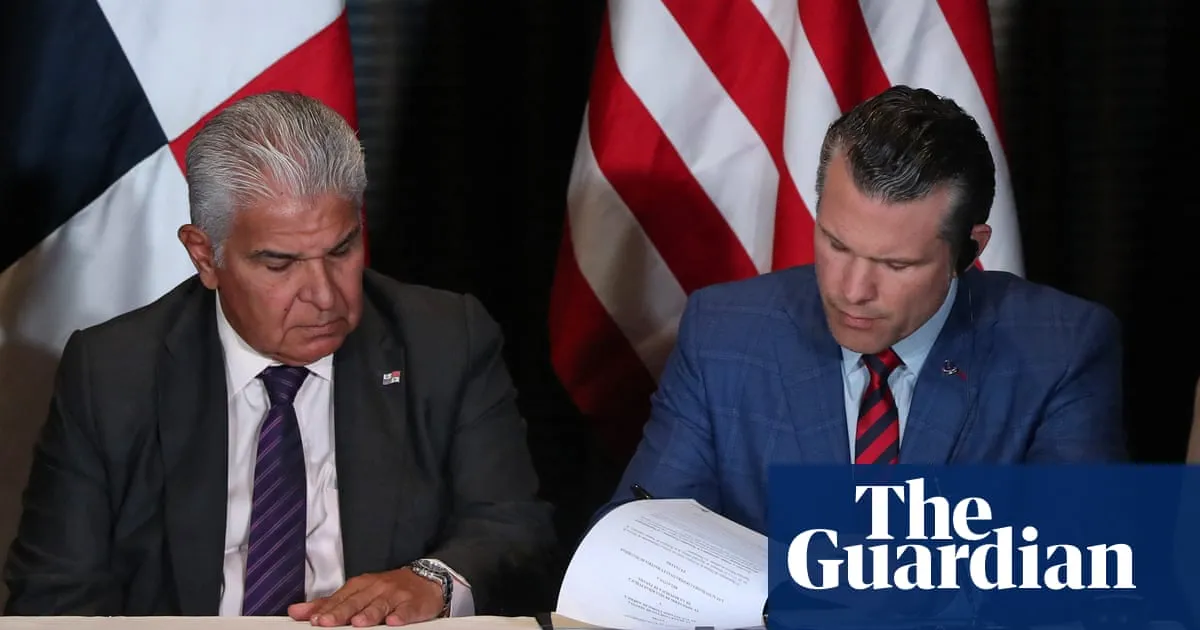
The US Defence Secretary, Pete Hegseth, recently suggested the possibility of American troops returning to Panama to help “secure” the strategically significant Panama Canal. This proposal, however, was swiftly rejected by the Panamanian government, reflecting the complex historical and national pride associated with the canal.
During his visit to Panama, Hegseth discussed the idea of re-establishing military bases or naval air stations in the region. He highlighted that the US could potentially “revive” its military presence “by invitation.” The suggestion of rotating deployments of US troops sparked immediate concerns among Panamanians, as the canal’s ownership is a point of national pride following its control by the US until 1999.
The Panama Canal is crucial for global trade, handling approximately 40% of US container traffic and 5% of worldwide trade. Former President Donald Trump has previously criticized the canal's operations, claiming that US naval ships are “severely overcharged” and not treated equitably. Trump has expressed concerns over Chinese influence in the region, which his administration has vowed to address.
Hegseth's comments included the possibility of joint military exercises between US and Panamanian forces, emphasizing enhanced capabilities and cooperation. However, the notion of a long-term rotational force, similar to the US military presence in Darwin, Australia, is politically sensitive for Panama’s current administration. José Raúl Mulino, Panama's centre-right leader, quickly dismissed the idea, reiterating the country’s stance on maintaining sole ownership of the canal.
In a joint appearance with Hegseth, Panama's security minister, Frank Abrego, stated, “Panama made clear, through President Mulino, that we cannot accept military bases or defence sites.” This firm response underscores Panama’s commitment to its sovereignty and the importance of the canal to its national identity.
In addition to military presence discussions, Hegseth indicated that the US was seeking an agreement for its warships to pass through the canal “first, and free.” However, Panama’s minister for canal affairs, Jose Ramón Icaza, clarified that the country aims to develop a compensation system for military vessels, ensuring that services provided are cost-neutral rather than free.
The Panama Canal Authority (PCA) has emphasized that all vessels using the canal must pay the same tolls based on their capacity and cargo, regardless of their country of origin. The PCA reiterated that the US acknowledges Panamanian sovereignty over the canal, though Hegseth did not address this aspect during the news conference.
Throughout his visit, Hegseth made references to China’s growing influence in Latin America, asserting that the US does not seek war but aims to deter perceived threats from Beijing. He stated, “We do not seek war with China. But together, we must prevent war by robustly and vigorously deterring China’s threats in this hemisphere.”
In response to Hegseth’s comments, Chinese officials accused the US of bullying tactics. The Trump administration has placed pressure on Panama regarding the Hong Kong-backed Panama Ports Company, accusing it of failing to meet contractual obligations. This company has been scrutinized for its role in the canal’s operations and is currently facing an audit dispute over $1.2 billion owed under its concession.
As Panama navigates its relationship with the US and China, it remains a focal point for geopolitical interests in the region. The recent announcement of a deal by CK Hutchison, the parent company of the Panama Ports Company, to sell its ports to a consortium led by BlackRock for $19 billion, adds another layer of complexity to this ongoing narrative.